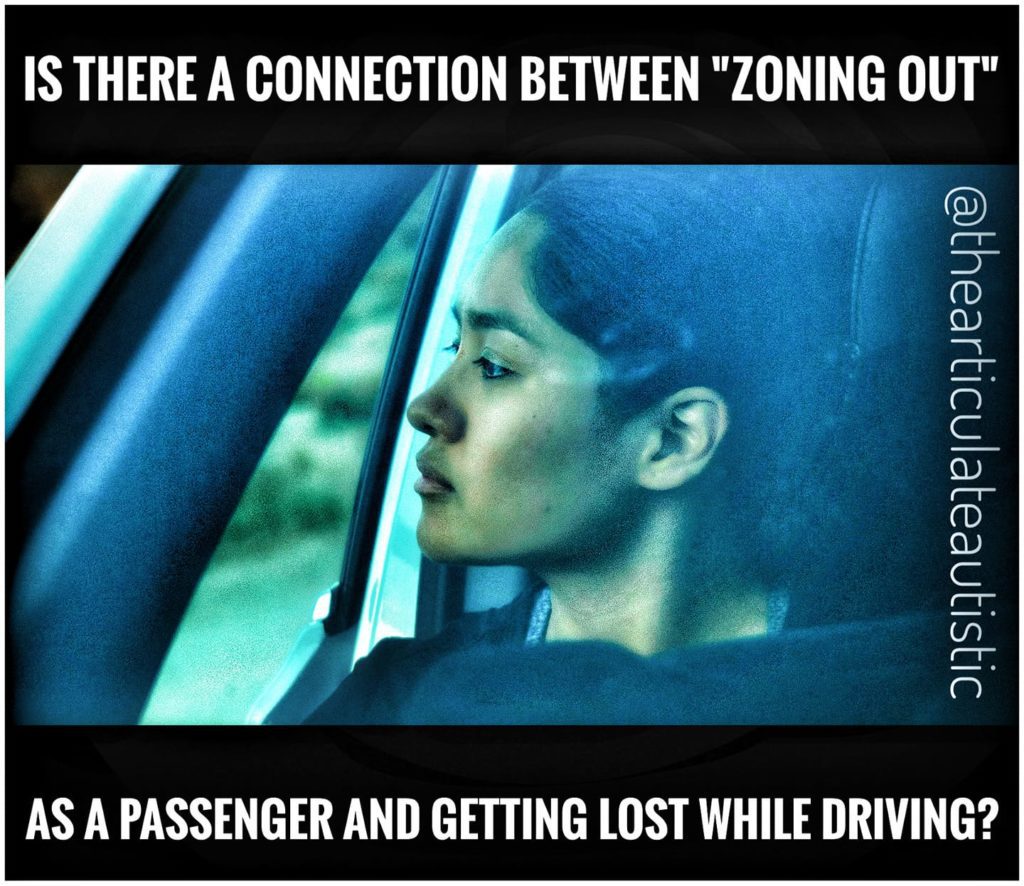Is There a Connection Between “Zoning Out” As a Passenger and Getting Lost While Driving?

If you are an autistic person or you know an autistic person, you know all about “zoning out”, or, as I like to call it, taking sensory breaks.
I’ll explain more about that in another post, but I want to focus on this particular aspect of it.
When I wrote the post about getting lost easily, it jogged a memory. A long time ago, when I had a different therapist, I told her I got lost all the time.
We were talking about it, and she asked a simple question, “Well, didn’t you pay attention when somebody was driving?”
Huh?? No! Was I supposed to??
That was my former therapist’s very first indicator that I thought differently from other people.
I never paid attention to anything that was going on when I was a passenger in a car. I just stared out the window and let the landscape coalesce into a beautiful, mind-numbing blur. If the radio was on, I might listen or sing.
(Article continues below.)
The best way to improve communication with your autistic loved one is to understand how your autistic loved one’s mind works! Intentions, motivations, and personal expressions (facial expressions or lack thereof, body language, etc.), are often quite different in autistic people than they are in neurotypical people.
Experience a better understanding of your autistic loved one by reading books about life from an autistic perspective as well as stories that feature autistic characters. You’ll have so many “Ah ha!” moments and start seeing your autistic loved one in a different light (and you’ll have a better understanding of their behaviors, which you may have been misinterpreting up until now).
Books I recommend for a better understanding of your autistic loved one:
I’d talk to the person driving if I absolutely had to, but the rhythm of the car was so soothing. The feeling of the tires going over asphalt, the gentle bouncing, the trees and buildings as they became one continuous object, the thoughts and scenarios dancing freely and playfully in my head.
Paying attention to how we got from point A to point B in a car wasn’t even a thought in my head. Nobody ever told me to pay attention as a passenger, either, unless they were specifically trying to show me something.
– Jaime A. Heidel
I was quiet. They were quiet. It was nice. Peaceful.
I know my inner compass and sense of direction and spacial relations are all broken, but I wonder if taking long sensory breaks during car rides could be another contributing factor in getting lost as an adult driver?
Is this another incidence where NTs pick things up by observation that ND people just don’t?
Follow me on Instagram.
Want downloadable, PDF-format copies of these blog posts to print and use with your loved ones or small class? Click here to become a Patreon supporter!






